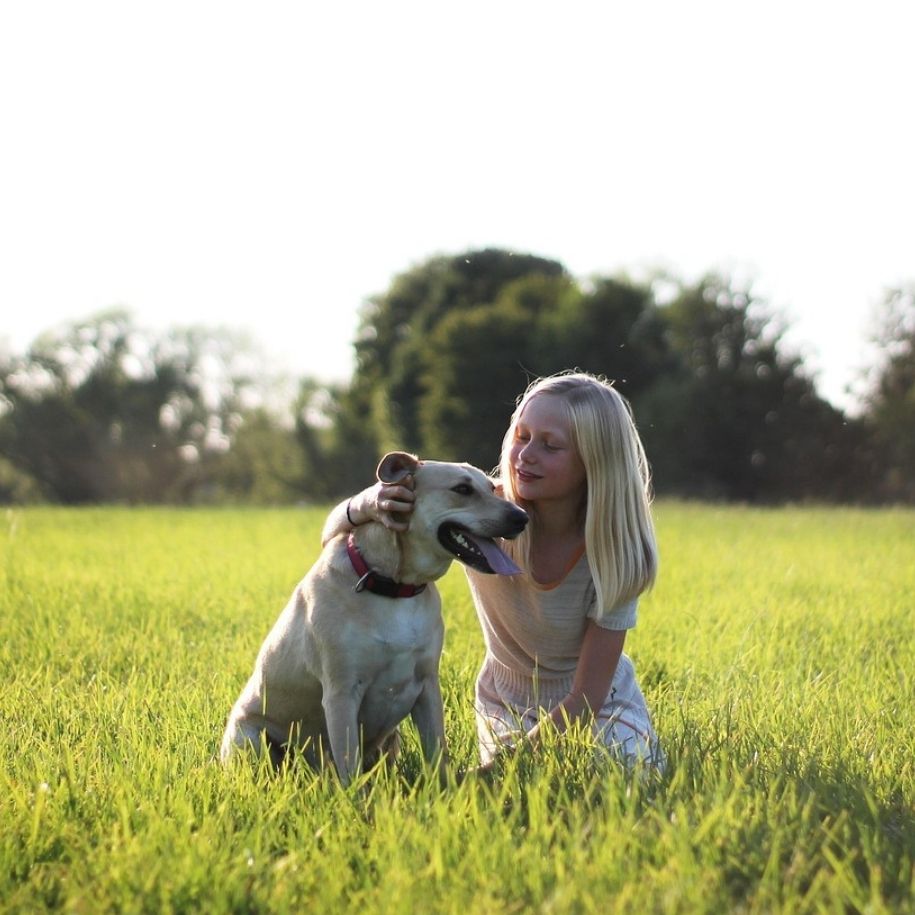French Bulldogs, affectionately known as 'Frenchies', have become one of the most popular breeds in the UK. Known for their distinctive bat ears, charming personality, and compact size, they're ideal companions for many UK households. This comprehensive guide covers temperament, exercise needs, training challenges, health concerns, and everyday care to help British pet owners decide whether this breed is right for their home.
Quick Facts at a Glance
-
Breed group: Utility dog (pedigree breed)
-
KC recognition: Recognised as a pedigree breed by the UK Kennel Club
-
Origin: France (with development in England and the United States)
-
Original role: Companion dog bred for ratting and companionship
-
Breed type: Small, compact brachycephalic companion dog
-
Size: Small dog
-
Height: Males & Females: approximately 28–33 cm
-
Weight: Males & Females: approximately 8–14 kg
-
Lifespan: Average 10–12 years
-
Coat: Short, smooth, single coat that is easy to maintain
-
Colours and markings: Brindle, fawn, pied, cream, or white (colour-linked health issues may apply)
-
Temperament: Affectionate, playful, sociable, people-oriented, can be stubborn
-
Shedding: Low to moderate (year-round shedding)
-
Exercise needs: Low to moderate, around 20–40 minutes daily
-
Energy level: Low to medium (bursts of play followed by long rest periods)
-
Barking tendency: Low, generally quiet compared to many breeds
-
Grooming: Low, weekly brushing and regular skin-fold care required
-
Trainability: Moderate, intelligent but stubborn, responds best to positive reinforcement
-
Best for: Flat dwellers, families, first-time owners who understand health needs
History & Origins
The French Bulldog’s history can be traced back to 19th‑century England, where small Toy Bulldogs were kept by lace workers in Nottingham. When many of these workers migrated to France during the Industrial Revolution, they brought their dogs with them.
In France, these small Bulldogs were crossed with local breeds, likely including terriers and pugs. This selective breeding led to the development of the breed’s distinctive features, most notably the upright “bat ears,” compact body, and affectionate temperament. The dogs quickly became popular companions among Parisian workers, artists, and later, the upper classes.
By the late 1800s, the French Bulldog had gained international recognition. The breed was officially recognised by kennel clubs, including the UK Kennel Club, and its role shifted fully from working dog to companion breed. Today, French Bulldogs are one of the most popular breeds in the UK, valued for their adaptable nature and close bond with humans.

Exercise Needs: How Much Is Enough?
French Bulldogs are not endurance dogs. In the UK climate, they usually need:
-
20–40 minutes of gentle exercise per day
-
Short walks rather than long hikes
-
Playtime indoors or in shaded outdoor areas
Because Frenchies are a brachycephalic (flat‑faced) breed, they are at higher risk of overheating and breathing difficulties. Avoid exercising during hot or humid weather and always carry water.
Grooming & Daily Care
French Bulldogs are often described as low-maintenance, but their grooming needs are specialised rather than minimal.
Skin Folds: French Bulldogs have deep facial wrinkles that can trap moisture, food, and bacteria. These folds should be gently cleaned 2–3 times per week using a damp cloth or vet-approved wipe, then dried thoroughly. Poor fold hygiene can lead to dermatitis and painful infections.
Coat Care
-
Short coat with minimal brushing needs
-
Weekly brushing helps remove loose hair and supports skin health

-
Bathing every 6–8 weeks or as needed using a gentle dog shampoo
Ears: Their upright “bat ears” allow airflow but can still collect wax and debris. Check ears weekly and clean when necessary to prevent infections.
Nails & Teeth
-
Nails should be trimmed every 3–4 weeks

-
Dental care is important, as small breeds are prone to dental disease; aim for tooth brushing several times per week

Common Health Issues in French Bulldogs
French Bulldogs are a brachycephalic breed and are predisposed to several inherited and structural health conditions. Understanding these issues is essential for responsible ownership.
-
Brachycephalic Obstructive Airway Syndrome (BOAS): BOAS affects the airway due to a shortened skull. Symptoms include noisy breathing, exercise intolerance, overheating, and collapse in severe cases.
-
Skin Allergies and Dermatitis: Environmental and food allergies are common. Symptoms include itching, redness, ear infections, and recurrent skin infections. Regular grooming and veterinary guidance are key to long-term management.
-
Eye Conditions: Their prominent eyes are prone to ulcers, dry eye, and injury. Any squinting, discharge, or redness should be treated promptly by a vet. Such as cherry eye and ulcers; prompt treatment is crucial.
-
Intervertebral Disk Disease (IVDD): French Bulldogs have a higher risk of Intervertebral Disc Disease (IVDD) due to their compact build. Signs include reluctance to jump, pain, weakness, or sudden paralysis. Preventative care includes weight management and avoiding stairs or jumping from furniture.
-
Spinal disorders: Frenchies have the highest odds ratio (21 : 1) for intervertebral-disc disease among purebred dogs. Keeping them lean and avoiding stairs lowers strain.
-
Heat Sensitivity: French Bulldogs struggle to regulate body temperature and are at high risk of heatstroke. Even moderate UK summer temperatures can be dangerous, making cooling strategies essential.
When to See a Vet
Contact your vet if your Frenchie shows:
-
Laboured breathing or loud snoring while awake
-
Blue or pale gums
-
Reluctance to move or jump
-
Excessive scratching or skin redness
Medical disclaimer: This guide is for general information only and does not replace professional veterinary advice.

Training & Behaviour
French Bulldogs are intelligent, affectionate, and strong-willed. Training success depends on patience and consistency.
Trainability: Frenchies are capable learners but can be stubborn and easily bored. Short, engaging training sessions work best.
Training Tips
-
Use positive, reward-based methods
-
Food rewards are particularly effective
-
Avoid harsh corrections, which can increase anxiety
Socialisation: Early socialisation helps prevent fear-based behaviours and improves interactions with children, visitors, and other dogs.
Harness vs Collar: A well-fitted harness is strongly recommended for French Bulldogs. Collars can place pressure on the neck and worsen breathing difficulties.

Separation Anxiety: Because they are highly people-oriented, French Bulldogs may develop separation anxiety. Gradual alone-time training and mental enrichment can help reduce stress.
Cost
French Bulldogs are one of the most expensive dog breeds to own in the UK, largely due to veterinary and insurance costs.
Purchase Price: £1,500–£4,000 from a responsible breeder Prices vary based on location, health testing, lineage, and demand. Extremely high prices may be linked to exaggerated traits rather than improved health.
Ongoing Monthly Costs
-
Food: £40–£70
-
Insurance: £40–£80 (often higher due to breed-specific risks)
-
Routine care, grooming, and preventative treatments: £30–£60
Estimated monthly total: £110–£200
Lifetime Costs: Due to higher-than-average vet bills, lifetime ownership costs can significantly exceed those of healthier breeds. Comprehensive pet insurance is strongly recommended for UK owners.
Legal & Welfare Considerations in the UK
-
Ear cropping is illegal in the UK
-
Importation of dogs with cropped ears is restricted under recent animal welfare legislation
-
Always choose breeders who prioritise health over appearance
Responsible breeders should carry out health testing and be transparent about breathing and mobility issues.
Choosing a Reputable Breeder or Rescue
Choose a Kennel Club Assured Breeder or a breed club that health-tests for BOAS, patellar luxation and eye disease. Ask to see parents’ health tests and ensure puppies are registered with the Kennel Club. Never buy from online ads that promise “rare colours” but skip paperwork. Preferably visit breed club shows or contact charities such as French Bulldog Rescue GB for adoption. Rescues often include neutering, microchipping and behaviour checks in their rehoming fee.
Is a French Bulldog Right for You?
French Bulldogs suit UK owners who:
-
Want a loving companion rather than a sporty dog
-
Can manage higher vet and insurance costs
-
Are prepared to monitor health closely
-
Spend plenty of time at home
They are not ideal for owners seeking long outdoor adventures or a low‑cost dog.

FAQs
Is a French Bulldog a good pet?
Yes, French Bulldogs are fantastic pets, particularly for families or apartment dwellers due to their friendly temperament and manageable exercise needs.
How much is a French Bulldog cost?
In the UK, a French Bulldog puppy typically costs between £1,500 and £5,000, with ongoing monthly costs averaging £60–£120.
What is the most common cause of death in French Bulldogs?
Breathing difficulties related to Brachycephalic Obstructive Airway Syndrome (BOAS) are among the most common causes of death, alongside cancers and heart conditions.
What are the do's and don'ts of French Bulldogs?
-
Do: Regular short walks, routine health checks, grooming.
-
Don’t: Over-exercise, ignore grooming needs, leave them alone for long periods, or expose them to excessive heat.
Conclusion
French Bulldogs can make loving, entertaining companions for UK pet owners who understand their unique needs. While they are well suited to flats and family life, they require careful management of their health, exercise, and environment—particularly when it comes to breathing, heat sensitivity, and ongoing veterinary care. By choosing a responsible breeder, budgeting realistically, and providing attentive daily care, owners can give their French Bulldog a comfortable, happy life in the UK.




